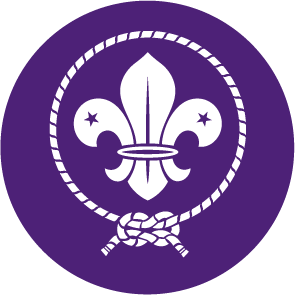Super secret Scouts mission
You’ll need
- Scissors
This activity is designed to be run alongside a normal meeting full of activities. It shouldn’t distract too much from everything else going on, but it gives new members the chance to chat to people and find out all they need to know.
Before you begin
- Cut out the ‘Scouts knowledge cards’.
- Cut each card in half. Put all of the question halves in one pile and all of the answer cards in another pile.
Prepare to play
- The person leading the game should give the new Scout all of the question cards. They’re now the detective.
- The person leading the game should give everyone else an answer card. They’re now the agents.
Mission time
- Throughout the meeting, everyone should get stuck in to all of the activities like normal.
- At the same time, the detective should approach people and ask them questions.
- The agents should answer the detective’s questions using their answer card to get all the facts right.
- The detective should keep asking questions to find out as much as possible. They may want to keep track of the answers by collecting the answer cards or putting the finished question cards in a pile somewhere.
- At the end of the meeting, the detective should share some of the information they’ve found with the rest of the agents.
Reflection
Lots of the questions and activities in this activity helped people to think about the Scout Law. The Scout Law contains lots of principles – many of them are shared with Scouts around the world. Do people think the Scout Law fits with what they already believe? Can anyone give an example of how? Which of the principles of the Scout Law do people think is the most important? There’s no right answer here, but it’s interesting to think about why people might answer differently.
This activity also needed everyone to communicate well. Some people were gathering knowledge while others were sharing it – but both roles needed people to listen to others as well as talking! When else might being able to listen before you answer be useful? Did anyone find it tricky to communicate at times? Could they have done anything to get their message across better?
Safety
All activities must be safely managed. You must complete a thorough risk assessment and take appropriate steps to reduce risk. Use the safety checklist to help you plan and risk assess your activity. Always get approval for the activity, and have suitable supervision and an InTouch process.
- Scissors
Supervise young people appropriately when they’re using scissors. Store all sharp objects securely, out of the reach of young people.
It’s up to you whether you use the blank cards and interceptor cards. If you use them, explain them as you hand the cards out. The blank cards give the detective the chance to ask their own question. The interceptor cards give people the chance to get up to mischief – it’s up to you what this means, for example, people could give made up answers to questions or answer a different question entirely.
Check through the questions and answers before you play. If any are likely to be tricky, keep them to one side. You don’t have to use the cards provided – you could make your own if your need a different level of challenge.
We’ve tried to keep it short and simple, but if anyone struggles with reading it’s OK for them to work in a pair. Detectives could also team up with a partner if it’s a bit too daunting to approach the agents on their own.
All Scout activities should be inclusive and accessible.
If anyone really enjoyed this activity, they could lead it next time. They could also help update the question and answer cards – what else should be asked? This activity format could also be used to help people learn about different things, for example, planning a camp or activities for the next term.
Why not ask young people to design their own question and answer cards? They should make sure they cover the badge requirements, but they should also think about what’s most important for new members to know. Is there anything they wish someone had told them when they first started?
